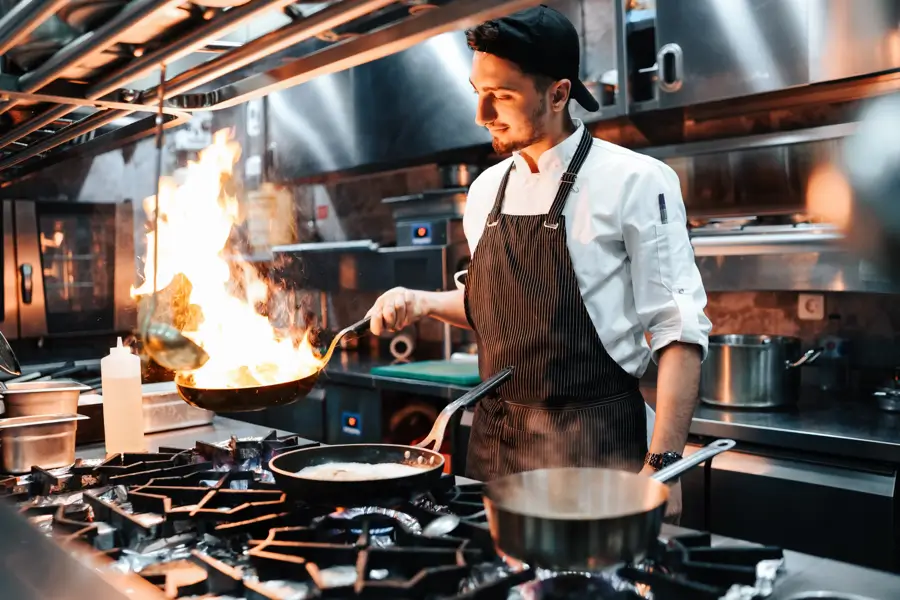
HIGHER EDUCATION

The world of culinary arts education is a diverse field, offering aspiring chefs and culinary enthusiasts a plethora of educational opportunities to hone their skills. From traditional culinary arts programs to specialized degrees in pastry, hospitality management, and more, culinary schools offer a wide range of degree programs that cater to the diverse interests and career aspirations of students. In this article, we’ll explore the different types of culinary degrees available, uncovering the nuances, requirements, and unique aspects of each, providing you with a comprehensive guide about how to choose the right culinary degree program.
There are several culinary degrees available for students who wish to pursue a career in the culinary arts. These include:
Certificate and diploma programs in the culinary arts are a great option for students who want to quickly gain practical experience and start their careers in the food industry. These programs typically last for less than a year and focus on providing students with hands-on training in kitchen safety and sanitation, cleaning and servicing of kitchen equipment, knife skills, and developing the ability to read and write recipes.
Students will also gain hands-on experience in various cooking techniques such as baking, grilling, sautéing, and braising, as well as learn about basic restaurant management, raw product and menu pricing, and industry economics. All of these elements combined provide students with a well-rounded education that prepares them for the dynamic and competitive culinary industry.
An Associate Degree in Culinary Arts is a two-year undergraduate program that teaches students a variety of cooking techniques, ranging from the fundamental to the modern. Students learn how to roast, braise, grill, sauté, and prepare stocks and sauces, as well as techniques like sous vide, fermentation, preserving, and contemporary plating.
In addition to learning about cooking and baking, students explore the business side of the culinary industry. They study concept development, menu design, pricing, profitability, cost control, and restaurant accounting. Students also examine “the people side” of the business, including staff supervision and service management. Beyond cooking and business skills, the program also focuses on general education and career development. Students develop their written and verbal communication skills, explore the relationship between cuisine and historical events, and learn about the basics of nutrition and how it relates to the culinary industry.
A bachelor’s degree in Culinary Arts is a four-year program that offers more in-depth and specialized training for individuals who wish to pursue a career as a chef or culinary professional. The coursework in a bachelor’s degree program often covers topics such as advanced culinary techniques, food science, nutrition, menu design, kitchen management, and entrepreneurship. In addition to practical cooking skills, students in a bachelor’s degree program also learn about the business side of the culinary industry, such as budgeting, marketing, and staffing.
A Bachelor’s Degree in Culinary Arts typically includes hands-on experience in a professional kitchen environment, allowing students to put their skills to the test in real-world scenarios. Students may also have the opportunity to participate in internships or study abroad programs, providing them with exposure to different cuisines and culinary traditions from around the world.
Upon graduation, individuals with a Bachelor’s Degree in Culinary Arts can pursue various career paths in the culinary industry, including working as a chef, restaurant manager, food writer, consultant, or educator. They may also choose to open their own restaurant or catering business.
The pursuit of a Master’s degree in culinary arts typically indicates a desire to move into a management role in the culinary industry. This could be a natural progression for someone who has just completed their Bachelor’s degree, or for a seasoned chef or baker seeking to transition into a managerial position. Management positions in the restaurant and hospitality industry require additional education beyond the technical skills required for cooking and kitchen supervision.
In contrast to undergraduate programs, Master’s degree programs are more focused on theory and academics. By the time students enter a Master’s program, they are expected to have already mastered the necessary industry skills, including baking and pastry, general cooking, and culinary arts. Business skills are also important for those pursuing a career in culinary management. Master’s programs help students pull together these disparate elements and provide direction for short-term and long-term planning and development, financial management, and growth strategies.
As you begin to think about a culinary degree, it’s important to consider the type of chef you want to be and familiarize yourself with the various types of chefs and their roles within a restaurant. This understanding can help you choose a culinary program that aligns with your career goals. By identifying the specific area of culinary arts you want to specialize in, or the job function you want to focus on, you can tailor your studies to build the skills and knowledge necessary to succeed in that role.
Chef positions are generally hierarchical, with the most responsibility falling on the managerial chefs. These include the chef-owner, who starts their own restaurant, the executive chef (Chef de Cuisine, Head Chef), who oversees all aspects of the kitchen, the sous chef (Second Chef, Under Chef), who serves as second in command and runs the kitchen in the executive chef’s absence, and the senior chef (Chef de Partie, Station Chef), who specializes in one menu item.
Specialized chefs, on the other hand, are experts in a specific area and typically don’t fall within the hierarchy of a kitchen. Examples include the:
Choosing a culinary program is an important decision that requires careful consideration. While knowing the type of chef you want to become and understanding the various roles within a restaurant is a good starting point, there are other factors to take into account to ensure that you choose a program that best aligns with your career goals. Here are some factors to consider as you ponder what type of degree you want to pursue:
Culinary degrees often offer specialized programs in areas such as pastry arts, culinary arts, hospitality management, or international cuisine. Think about what interests you the most and what you enjoy cooking the most. Do you have a passion for baking and desserts, or do you prefer savory dishes? Are you interested in exploring global flavors and cuisines, or do you want to focus on classical culinary techniques? Understanding your culinary interests and strengths can help you determine the specialization that aligns with your career goals.
The culinary industry offers diverse career paths, including restaurant kitchens, hotels, catering companies, food media, and more. Consider which sector of the culinary industry appeals to you the most. Are you interested in the fast-paced environment of a restaurant kitchen, or do you see yourself working in a luxury hotel? Do you enjoy the creativity of catering events, or do you aspire to be a food writer or a culinary educator? Understanding the different sectors of the culinary industry can help you make an informed decision about the type of chef you want to be.
Culinary careers can range from working in a professional kitchen to owning your own restaurant or catering business. Consider the type of work environment that suits your personality and lifestyle. Do you thrive in a high-pressure kitchen setting, or do you prefer a more relaxed and creative atmosphere? Are you interested in the business aspect of the culinary industry, or do you see yourself as a culinary entrepreneur? Understanding your preferred work environment can help you choose a culinary degree program that aligns with your career aspirations.
Culinary school is a significant investment, and its cost can vary significantly based on the program, location, and duration. While some culinary schools may offer more affordable options, others can be quite expensive, with tuition ranging from $10,000 to over $40,000 per year. Additionally, some culinary schools may require students to purchase uniforms, specialized tools, and supplies, which can add to the overall cost.
Evaluating the Return on Investment (ROI) is crucial for anyone considering culinary school. ROI is a financial metric that compares the cost of an investment to the profit or return that investment generates over time. In the context of culinary school, ROI helps determine whether the cost of tuition, uniforms, tools, and supplies is worth the potential benefits and career opportunities that come with a culinary education.
While culinary school can provide students with valuable skills and knowledge, it’s important to assess the potential job prospects and earning potential after graduation. Graduates of top culinary schools may have access to higher-paying jobs and opportunities for career advancement, while others may find it challenging to secure employment in the competitive culinary industry.
There is no one-size-fits-all answer to what degree is best to become a chef, as it largely depends on your individual goals and career aspirations. Ultimately, the degree that is best for you will depend on your career goals, time and financial resources, and personal preferences. It’s important to carefully consider all of your options and choose a program that aligns with your interests and career aspirations.

The Art Career Project is a trusted resource for emerging and professional artists.